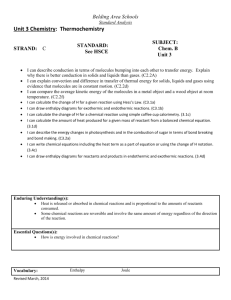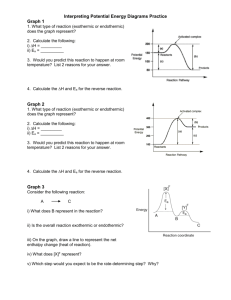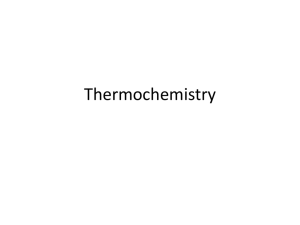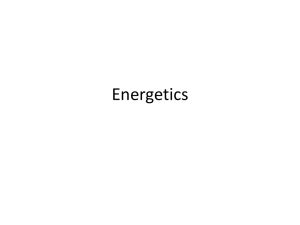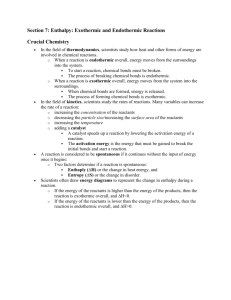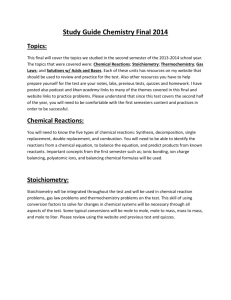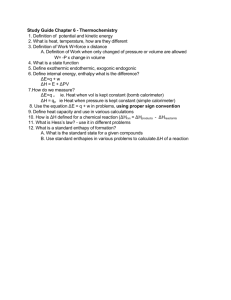File - SP Chemistry
advertisement
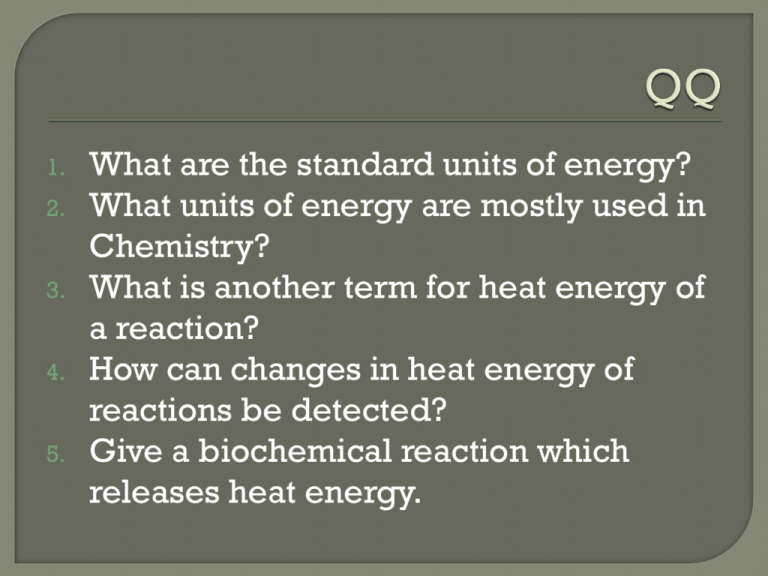
1. 2. 3. 4. 5. What are the standard units of energy? What units of energy are mostly used in Chemistry? What is another term for heat energy of a reaction? How can changes in heat energy of reactions be detected? Give a biochemical reaction which releases heat energy. Natural Energetics Objectives (Ref SGp28) 5.1.1 Define the terms exothermic reaction, endothermic reaction and standard enthalpy change of reaction (∆Hө) 5.1.2 State that combustion and neutralization are exothermic processes. 5.1.3 Apply the relationship between temperature change, enthalpy change and the classification of a reaction as endothermic or exothermic. 5.1.4 Deduce, from an enthalpy level diagram, the relative stabilities of reactants and products, and the sign of the enthalpy change for the reaction. Enthalpy is the heat energy of a reaction. Only changes in enthalpy can be measured. Standard enthalpy change (∆Hө) “is the heat energy transferred under standard conditions” pressure of 101.3 kPa (1 atm) temperature 298 K (25 ◦C) Reactants → Products Hreactants > Hproducts , ∆H = Hp – Hr so, ∆H is negative, heat energy is given out so the temperature of the container increases. This can be shown in an Energy Level Diagram. SPONTANEOUS REACTION – THE REACTANTS ARE UNSTABLE REACTION REQUIRING INITIAL HEATING FIRST – THE REACTANTS ARE STABLE E.g. HCl + NaOH → NaCl + H2O, ∆H -ve 1. Write 2 more and draw an Energy Level Diagram for each. E.g. CH4 + 2O2 → CO2 + 2H20, ∆H -ve 2. Write 2 more with an Energy Level Diagram for each. Reactants → Products Hreactants < Hproducts , ∆H = Hp – Hr so, ∆H is positive , heat energy is taken in so the temperature of the container decreases. This can be shown in an Energy Level Diagram. G&D p137 for a further example IN CLASS G+D P137 Q1-3 AT HOME P137 Ex 5.1 Q4+5 due Monday 20 January 2014. CAN WE? Define the terms exothermic reaction, endothermic reaction and standard enthalpy change of reaction (∆Hө) State that combustion and neutralization are exothermic processes. The classification of a reaction as endothermic or exothermic. Deduce, from an enthalpy level diagram, the relative stabilities of reactants and products, and the sign of the enthalpy change for the reaction. NEXT TIME Calculations on Enthalpy.
